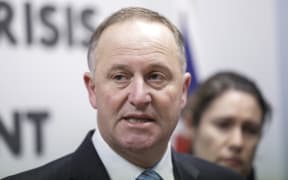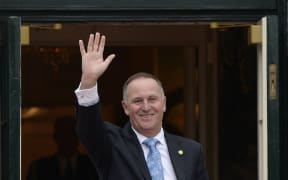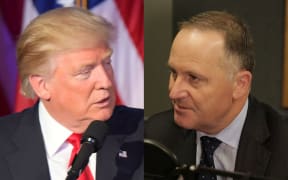Businesses fear the US decision to quit the Trans-Pacific Partnership (TPP) may eventually trigger a global trade war.
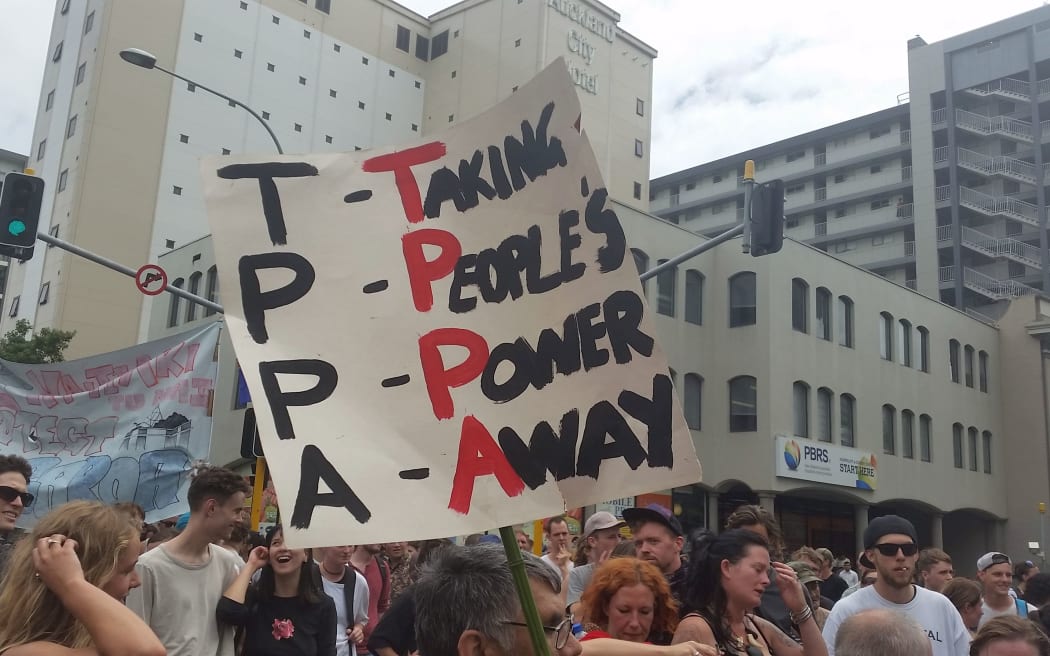
Businesses may be bereft, but TPP opponents are celebrating the trade deal's demise. Photo: RNZ / Murielle Baker
President-elect Donald Trump has said he will withdraw the country from the controversial TPP on his first day in office, in two months time.
"A huge disappointment to learn that TPP is not going to go forward as we had envisaged," International Business Forum executive director Stephen Jacobi said.
"Short of trying cryogenics I'm not sure what we can do at this point."
The TPP's demise already carries some bite.
Special Agricultural Trade Envoy Mike Petersen points out that meat processors are at a disadvantage in the Japanese market, with their Australian rivals already enjoying lower tariffs.
"Australia have effectively almost an 18 percent tariff advantage for beef exports into Japan at the moment. And that advantage holds over not just New Zealand, but also the US, and Canada."
"So, they have a big advantage and it's really hurting us in that market," Mr Petersen said.
Mr Jacobi fears Mr Trump will go even further, and slap high tariffs on goods from Mexico and China.
He said they were both important markets for New Zealand firms, and the rise of economic protectionism was a very real and daunting prospect.
"A world without rules and a proper framework is an unsafe and unsecure world for New Zealand."
The government is consoling itself by noting New Zealand has plenty of irons in the trade fire, including the Asia-focused Regional Comprehensive Economic Partnership (RCEP) as well as potential deals with the European Union and the Middle East.
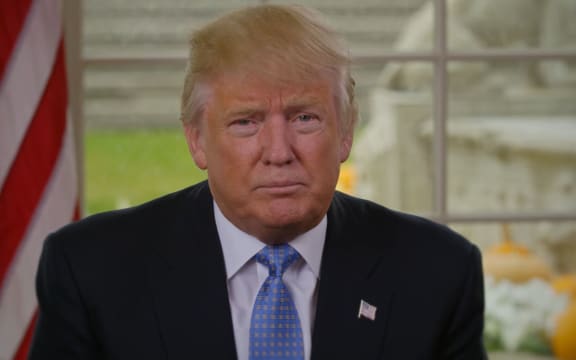
Donald Trump has said he will remove the US from the TPP on his first day in office. Photo: Screenshot / YouTube / Transition 2017
But it is the US and Japan - the world's biggest and third biggest economies - that are the real prize for Prime Minister John Key.
Mr Petersen said New Zealand gambled by putting all its eggs in the TPP basket in a bid to effectively secure trade deals with the US and Japan.
"We don't have the sway to be able to negotiate easily bilateral agreements with either Japan or the US on our own. It's why we entered TPP, it's why we started it."
Mr Jacobi fears Mr Trump will go even further than pulling out of TPP and may put high tariffs on goods from Mexico and China.
Both countries were important markets for New Zealand firms, and the rise of economic protectionism was a very real and daunting prospect.
"A world without rules and a proper framework is an unsafe and unsecure world for New Zealand."
Opponents celebrate TPP's failure
But if business is feeling bereft, TPP opponents are celebrating.
Not that they are hanging pictures of Donald Trump on their walls in thanks.
Green Party MP and TPP opponent Barry Coates said public awareness doomed TPP, not the maverick billionaire.
"Governments (have) lost the confidence of the public in these agreements that they were negotiating, and we think that means there needs to be a change in the kind of trade rules that we develop."
A prominent TPP critic, Auckland law professor Jane Kelsey, said many other trade deals, such as RCEP and the Trade in Services Agreement (TiSA), were based on the same model that enriched corporates at the expense of the public.
"There hasn't been so much attention paid to other negotiations," said Prof Kelsey.
"There is a lot more work that needs to be done so people can understand the links between all these mega deals that are premised on the same model."
The government is working on a new trade strategy and Prof Kelsey hoped it was more than just a rebranding exercise.
She said it was time for TPP cheerleaders to realise the tide had turned and people wanted deals that allowed governments to deal with issues like climate change and inequality, rather than focus on the profit motive and hand power to multinationals.

